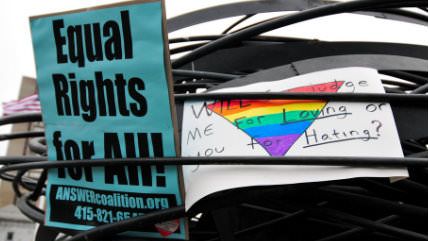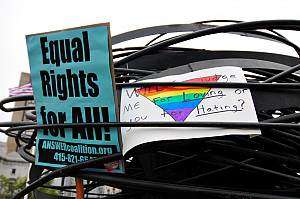Sheldon Richman on Scalia's Anti-Enlightenment Anti-Individualism
In Scalia's view, we have only the liberties mentioned in the Constitution.


Supreme Court Justice Antonin Scalia's dissent in Obergefell v. Hodges, the case that declared state laws forbidding legal recognition of same-sex marriages unconstitutional, may be worth examining apart from the particulars of Obergefell. What Scalia objects to in Justice Anthony Kennedy's majority opinion has nothing to do with same-sex marriage per se. His concern is not the content of the opinion but the activity the majority engaged in to arrive at it. Specifically, he laments "the Court's claimed power to create 'liberties' that the Constitution and its Amendments neglect to mention."
In Scalia's view, we have only the liberties mentioned in the Constitution and its amendments, and those are the only liberties the Supreme Court should concern itself with. This view would be worrisome, argues Sheldon Richman, even if among those amendments we did not find number nine, which states, "The enumeration in the Constitution, of certain rights, shall not be construed to deny or disparage others retained by the people." One need not embrace Kennedy's opinion in all its particulars, writes Richman, to see that Scalia's ancient philosophy is as much a danger to liberty as anything the so-called liberals might come up with.



Show Comments (0)